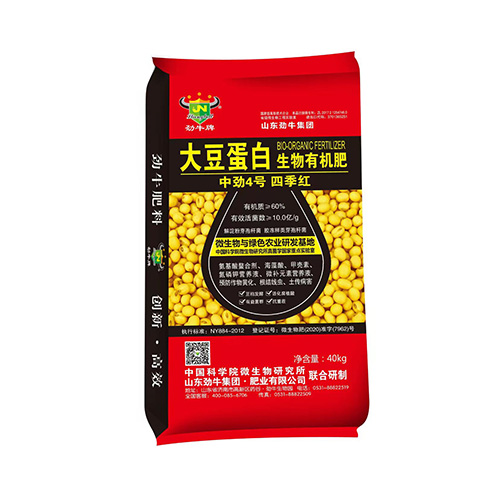What are the common misunderstandings of microbial fertilizers?
Microbial fertilizer is a kind of microbial fertilizer: in the process of use, microbial fertilizer plays an important role in improving soil biological fertility, preventing root diseases, and improving product quality, but there are also users who report that the effect is unstable, and the effects of the same batch of varieties of different crops, different periods, and different dosages vary greatly. After investigation, it was found that the product itself has unstable effects, storage, transportation and user use problems. Due to improper use by users, the phenomenon of reduced effect of microbial fertilizer is very common. There are many misconceptions about farmers' use of this fertilizer, mainly in terms of concept and method of use.

Myth 1: Evaluate product quality at an effective rate.
The life activities of microorganisms will not only decompose insoluble and fixed elements in the soil, increase the supply of nutrients, use natural substances to transform into substances necessary for plant growth, promote the increase of crop yield, but also produce plant growth stimulants and antagonism of certain pathogenic microorganisms, which can reduce the occurrence of crop diseases and insect pests, the fertilizer effect is closely related to the reproductive speed of microbial flora, and the growth cycle of microbiota is very different, which is very different from the Z of fertilizers and plant regulators. Resulting in microbial fertilizers being less fast-acting than fertilizers and plant regulators. Therefore, the speed of effect of fertilizers cannot be compared with that of organisms.
Myth 2: The type is confused, and the concept is not clear whether it is a fungal agent or a bacterial fertilizer.
Agricultural microbial fungal agent refers to the target microorganism (beneficial bacteria) after industrial production of live bacterial preparations. It has the effect of directly or indirectly improving soil, restoring soil, maintaining the balance of microbial roots, degrading toxic and harmful substances; increasing the supply of plant nutrients or promoting plant growth through the life activities of microorganisms, improving the quality of agricultural products and the agricultural ecological environment.
Microbial fertilizers include compound microbial fertilizers and bio-organic fertilizers. Compound microbial fertilizer refers to the live bacteria products formed by the target microorganisms after being proliferated by industrial production and compounding with nutrients.
Bio-organic fertilizer refers to live fungal products that are based on the main animal and plant residues (such as livestock and poultry manure, crop straw, etc.) and are harmlessly treated after industrial production and proliferation.
The difference between fungal agents and bacterial fertilizers lies in the content of nutrients and organic matter in the product, and the right product should be selected according to the actual needs when using.
Myth 3: Use is unreasonable.
Some microbial strains will multiply in large quantities after entering the soil, and when the number reaches a certain level, it will become the dominant flora, but with the changes in the external environment such as fertilizers, fungicides, stew sheds, and high temperatures, it will lead to the death of beneficial bacteria, thus affecting the status of beneficial bacteria in the soil microbial system, once the status of beneficial bacteria will be reversed, so it is necessary to continue to maintain the status of beneficial bacteria and ensure the transformation of harmful bacteria properties, which requires the use of microbial fertilizers to supplement beneficial bacteria many times during the crop growth period.



